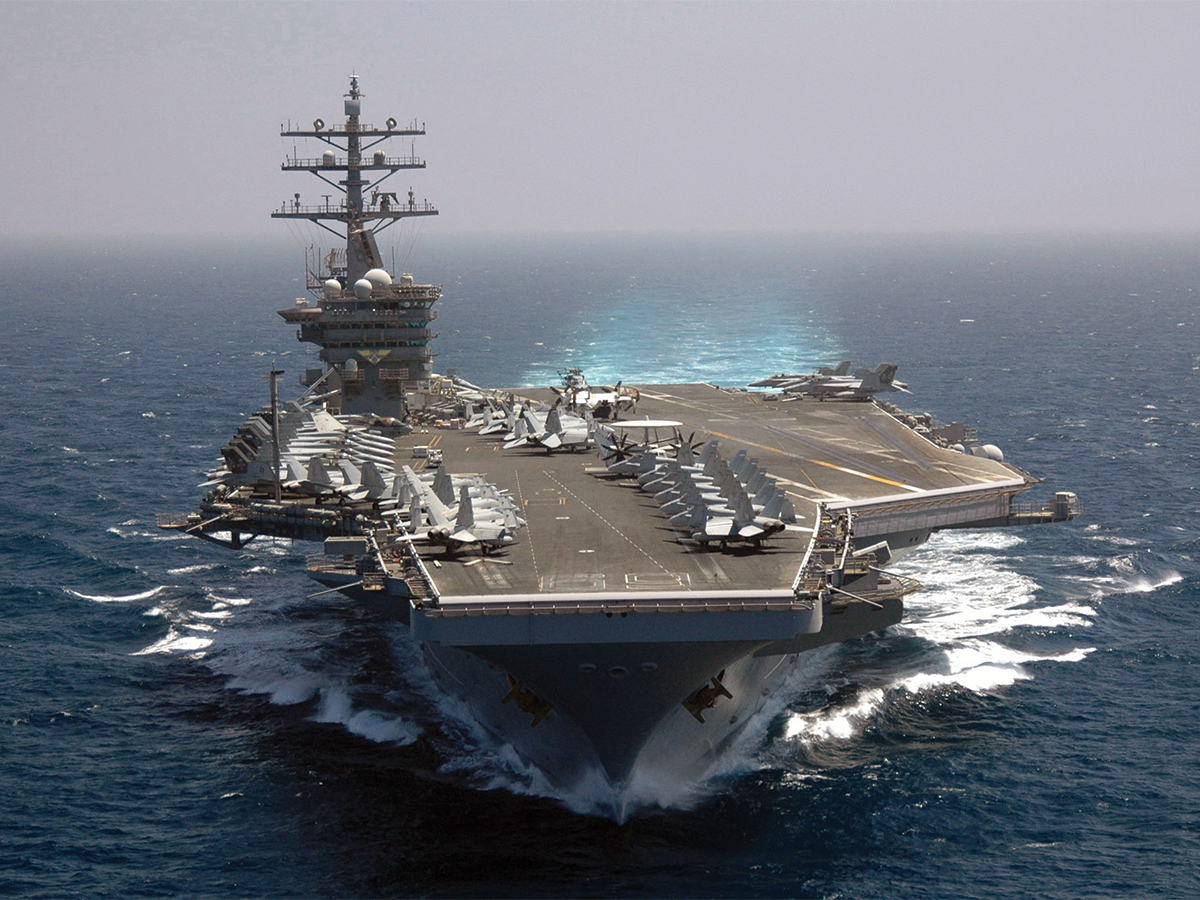On May 6, National Security Advisor John Bolton announced that the United States military was sending an aircraft carrier along with several other offensive destroyers into the Persian Gulf to “warn” Iran about its behavior and ambitions in the Middle East. The decision comes immediately after the Trump administration escalated additional sanctions on Iran’s manufacturing exports and Secretary of State Mike Pompeo’s repeated threats that “military action is not off the table” if Iran does not immediately comply with all of Trump’s demands. The Trump administration’s brazen and wanton bullying of Iran has severely endangered the lives of countless civilians in the Middle East, and it puts American citizens at risk of Iranian retaliation to American threats. This latest show of force is just another attempt by Trump and his underlings to distract the country and the media from his embarrassingly low approval ratings amidst the Mueller investigation revelations.
Ever since the Islamic Revolution of 1979, relations between the United States and Iran have been significantly cold and harsh. The United States has a long history of practicing military interventionism and aggression in dozens of nations in the Middle East. Iran, in particular, has been the victim of American aggression as early as 1953, when a CIA-assisted coup deposed democratically elected Prime Minister Mohammad Mossadegh. Mossadegh had promised to nationalize Iran’s valuable oil industries and to prevent American and British oil companies from continuing to profit off of the nation’s resources, which immediately invited hostilities from the U.S. government.
What makes Trump’s recent moves in the Persian Gulf so infuriating, even from an American perspective, is the administration’s blatant disregard for their own commitments and treaties with Iran in the past. In 2016, the United States, along with the other U.N. Security Council nations and Germany, successfully signed on to the Joint Comprehensive Plan of Action, also known as the Iran nuclear deal. The agreement aimed to ensure that Iran’s nuclear technology was used entirely for scientific purposes, not offensive ones. As recently as January 2019, CIA Director Gina Haspel has begrudgingly certified Iran’s continued compliance with the deal. However, the United States officially withdrew from the agreement in May 2018, a decision heavily motivated by Trump’s desire to build closer relations with Israel, one of America’s strongest allies in the region and a sworn enemy of Iran.
To add insult to injury, the Trump administration recently proposed selling nuclear technology to Saudi Arabia, arguably the world’s most potent state sponsor of terrorism and one of the most barbaric autocracies on Earth. Israel has received zero criticism from the Trump administration despite having nuclear weapons and refusing to sign the non-proliferation treaty, which almost every other nuclear power state has signed.
The Trump administration has made no secret of its obsession for regime change against Iran’s current leadership because it is one of the few nations in the Middle East that has successfully and actively resisted American influence. Iran is a massive counterweight against Israel and Saudi Arabia in the Middle East, and also boasts strong alliances with Russia, Syria, Lebanon, Iraq, Qatar, Palestine and the rebel Houthis of Yemen. All of these nations are aligned in regional proxy conflicts against the Saudis and the Israelis. Due to the Trump administration’s extremely pro-Israel stance, the U.S. has taken an even greater role in the region to forcefully push for Israeli and Saudi interests by supporting and arming proxy rebels against pro-Iran governments.
From the standpoint of the American taxpayer, continuous involvement in these endless wars in the Middle East is pointless and does not keep Americans safe at home. Ironically, the September 11 attacks were heavily sponsored by Saudi Arabia, an American ally, whom to this day has skillfully avoided prosecution. The Pentagon has instead targeted most of its anger at Iran.
At the end of the day, it is time for the United States to get its priorities straight and to put taxpayers and American soldiers first again. Bullying Iran with naval incursions does not protect Americans — it goads and provokes a hostile nation that will become even more antagonistic against the United States as time passes by. If the situation was flipped around, it is all but certain that Trump’s reaction to a hypothetical incident in which the Iranians start sending ships into the Gulf of Mexico would be explosive. It is time for the Trump administration to rethink its foreign policy strategy in the Middle East and to end its behavior as the playground bully of the region — the occupying force that feels as if it can do anything it wants courtesy of a large and powerful military. Might does not make right.








